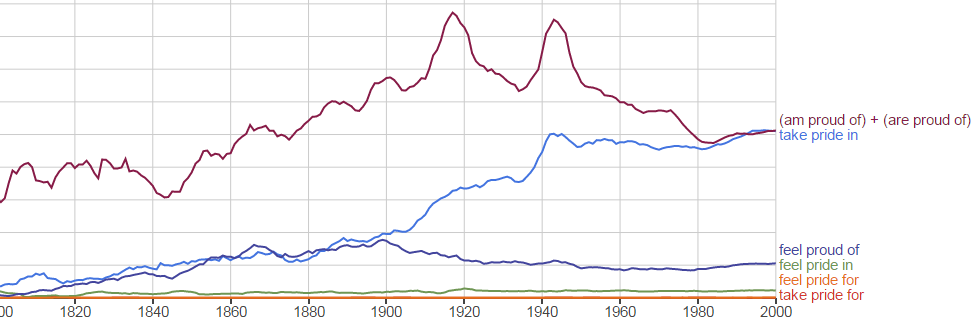Do you say you feel pride 'for' something or you feel pride 'in' something? 'For' feels right to me, but 'in' seems to make more sense.
There are two statements where I need it. One is 'pride __ country' and the other is 'pride __ army'
I want to talk about pride as a feeling; as a noun. For example "Nationalism is excessive pride of/in one's country'. I don't want to say "Nationalism is feeling excessively proud of one's country" or "Nationalism is taking excessive pride in one's country" as those unnecessarily complicate the sentence. Just to clarify, is the sentence "The parade instilled in them a pride in their country" wrong?

